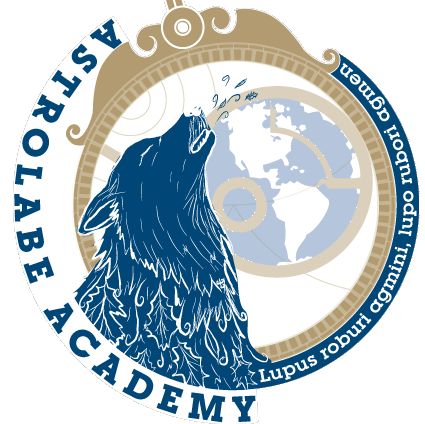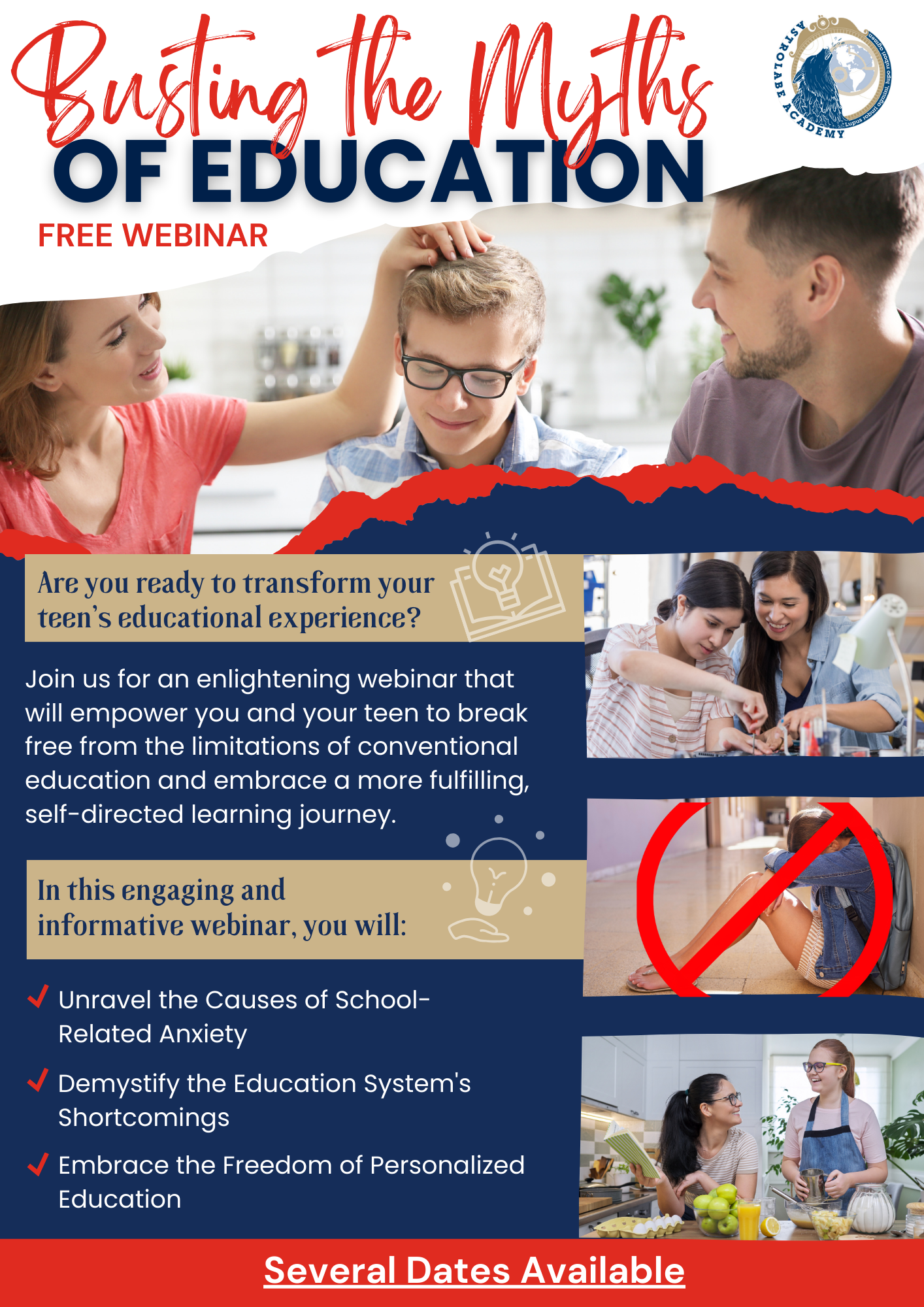..
Academic Philosophy
How we think. How they learn...
How we think.
Imagine, if you will, a high-school where students are free to learn at their pace and to pursue their interests. A school allows its student to pursue their own interests and learn in their own way. It is not a school with classrooms and desks. There is no disconnected curriculum, bits of this and that which the students must try to memorize and test for. Instead, they find themselves surrounded by limitless opportunities for personal growth, development of both critical thinking and real-world skills.
We follow the philosophy of Tony Wagner and many others who have done the research and shown unequivocally that our current education system neither teaches the students how to think, nor prepares them for what is ahead, be it college, workforce or citizenry. Mr. Wagner’s book “The Global Achievement Gap”, is on our resource list along with many other worthwhile selections on the topic of education. In it, he has defined 7 important skills that all students should have. These skills are listed here with quotes from his book and website with examples of the types of learning opportunities we provide here at Astrolabe Academy to address these needs. It is our goal to re-awaken and strengthen a love of learning in your child, to spark their curiosity, and develop their entrepreneurial minds. When they leave Astrolabe Academy, they will be more ready for work or college then you or they ever imagined.
How they learn.
1. Critical thinking and problem solving
“The idea that a company’s senior leaders have all the answers and can solve problems by themselves has gone completely by the wayside…The person who’s close to the work has to have strong analytic skills. You have to be rigorous: test your assumptions, don’t take things at face value, don’t go in with preconceived ideas that you’re trying to prove.” —Ellen Kumata, consultant to Fortune 200 companies
Our Freedom Path students learn how to find the answers, do the research, weigh pros & cons, and make decisions. Problem solving and critical thinking skills come from being in the thick of their pursuits and knowing its safe to experiement. Our students learn to stand up for what they believe in. They learn to take chances, offer solutions, and leave their mark.
2. Collaboration across networks and leading by influence
“The biggest problem we have in the company as a whole is finding people capable of exerting leadership across the board…Our mantra is that you lead by influence, rather than authority.” —Mark Chandler, Senior Vice President and General Counsel at Cisco
Astrolabe Academy’s culture is one of collaboration and mentoring. Students will learn to assess their own strengths, as well as those those they will come to work with, to facilitate collaboration in reaching the best solution to any number of problems they will be presented with. Students will not only learn methods for problem solving, but methods for effectively dealing with other team members, their personalities and their objections to ideas using problem solving and decision management tools such as Edward de Bono’s “6 Thinking Hats.”
3. Agility and Adaptability
“I’ve been here four years, and we’ve done fundamental reorganization every year because of changes in the business…I can guarantee the job I hire someone to do will change or may not exist in the future, so this is why adaptability and learning skills are more important than technical skills.” —Clay Parker, President of Chemical Management Division of BOC Edwards
As students pursue their interests, see information, classes, and mentors, they learn to see the trends that will impact them. They also learn to ask questions, analyze data and even start to foresee those trends. They study, research, make assumptions, experiment and learn new skills to adapt. The very nature of this learning methodology changes these students at their core and prepares them for the ever-morphing marketplace of their future lives.
4. Initiative and Entrepreneurship
“For our production and crafts staff, the hourly workers, we need self-directed people…who can find creative solutions to some very tough, challenging problems.” —Mark Maddox, Human Resources Manager at Unilever Foods North America
Initiative. Entrepreneurship. Two words that form the heart of our learning experience at Astrolabe Academy. As students pursue their interests, it is not uncomon for them to either be exposed to or directly learn about economics, producing, markets and marketing, and other entreprenurial skills.
5. Effective Oral and Written Communication
“The biggest skill people are missing is the ability to communicate: both written and oral presentations. It’s a huge problem for us.” —Annmarie Neal, Vice President for Talent Management at Cisco Systems
Astrolabe Academy students will be communicating in our weekly check-ins and group coaching. Part of our group sessions are setup similar to a mastermind group where the students share experiences, ideas, and challenges, and help each other solves those problems. The students also learn to keep detailed records of their projects, work, research, etc. To qualify for graduation, they prepare a detailed report and interview as if it were for a job.
6. Accessing and Analyzing Information.
“There is so much information available that it is almost too much, and if people aren’t prepared to process the information effectively, it almost freezes them in their steps.” —Mike Summers, Vice President for Global Talent Management at Dell
If nothing else, self directed learning is all about accessing and analysing information. Students deep dive into an interest. They reserch, collect information from a variety of sources, assimilate and analyze it. Then make decisions based on that process.
7. Curiosity and Imagination
“Our old idea is that work is defined by employers and that employees have to do whatever the employer wants…but actually, you would like him to come up with an interpretation that you like—he’s adding something personal—a creative element.” —Michael Jung, Senior Consultant at McKinsey and Company
Students are encouraged to pursue many possibilities to spark their curiosities and interests. Our staff is always watching to learn what might be a student’s passion or drive so that we can find ways to kindle those sparks. Students will be given opportunities to pursue their interests through field trips, mentorships and internships. In this learning world, they are safe to explore, experiement, make mistakes, learn, and try again.
The students remember what they learn here.They learn to effectively work together. They develop strong work ethic and mentoring skills. More importantly, they develop the desire to keep learning and open their minds to the many possible ways to solve the problems they will face in the future.



